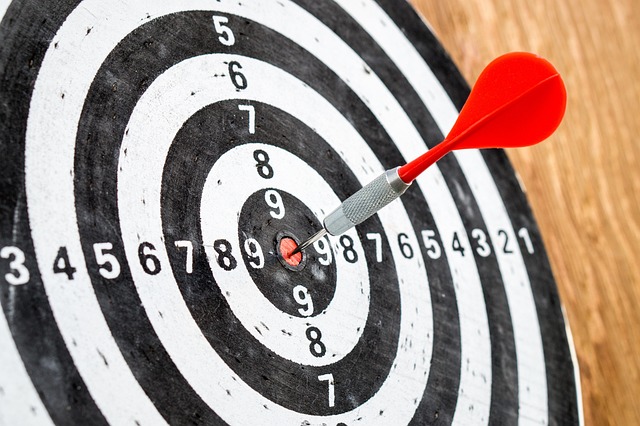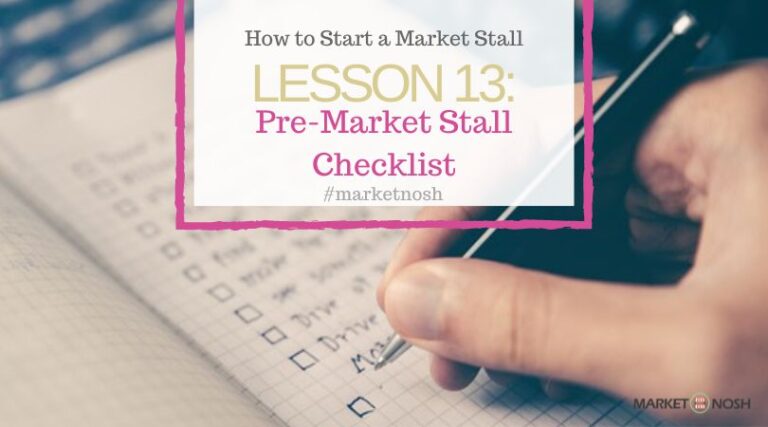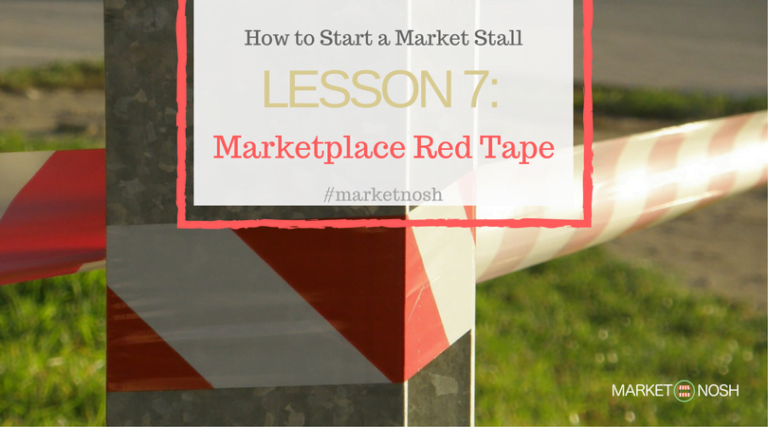Goal Setting for the Future Market Stall Owner
When I was training to be a teacher and many years into my teaching career there was one topic that came up over and over again – Goal Setting!
Goal setting is vital for achieving success and is also the measure of how well you are progressing. It can be your candle in the dark when all else feels like failure.
What is Goal Setting, How do you tweak your goals and why it is so powerful in overcoming obstacles in your path?

A Wish or a Goal?
I think it is probably best to clear up a small misconception between the goals I am talking about and the idea of a wish.
The Oxford Dictionary describes the word wish as:
Feel or express a strong desire or hope for something that cannot or probably will not happen
The words ‘probably will not’ and ‘cannot’ are what defines a wish. Something which is so far out of reach that it is never going to happen in the way we think it will.
I wish would be an end to the senseless killing of rhinos, but that is all that it is – a wish. It may be possible, we may be able to convince people of the stupidity of ingesting something which is just hair. We can trap, close borders, and create more awareness of the issue that Rhinos will be extinct in the next 20 years if something isn’t changed. It is still a wish though.
A goal on the other hand is something quite different:
The object of a person’s ambition or effort; an aim or desired result.
A measurable and visible achievement! This is far more proactive. It feels more certain, there is action required to reach that target! To stop poaching, my wish must become a goal that I can action!
Do I have a Goal or a Wish?
Amazingly, we sometimes get these two words mixed up. On the one hand, someone might say, “I wish I was wealthy” when they see someone else who has all the wealth and luxuries of life. That same person who is wealthy may say, “I achieved my first million, now to make the second!”
Remember the wish is something that probably or cannot be achieved. It is a way of telling ourselves that it would be great to have, but I cannot be bothered to try and make it happen.
When you look at your life, what goals have you set for yourself? Do you even have a goal?
If you do have a goal and your goal turns out to be a wish, are you satisfied with that? Goals must be measurable and visible achievements!
Thomas Edison tried over 3000* times to design a light bulb (Livescience.com). We know how much time and effort Graham Bell put into the telephone. They were goals that were realised by their owners, or rather it was the owner of the goal that made it achievable!

As a teacher, and during many teacher meetings and in-service training days, we normally approached the topic of goal setting. Why it was done. How it enables pupils to achieve better results. The teacher can follow a set plan without too much deviation.
This is where I was first introduced to SMART targets.
According to Wikipedia, Peter Drucker is the man most closely associated with this acronym. He wrote about management by objectives and this led to a revolution in thinking about achieving work-related targets in his book The Practice of Management.
The Acronym Explained
S – Specific
M – Measurable
A – Achievable
R – Realistic
T – Timely
The Practice of Management, Peter Ducker
This simple acronym revolutionised the way employees created targets and goals for their business. It has been so successful many organisations have taken it and adapted it for their needs.
The greatest triumph is taking this form of target setting and applying it to your own life goals. Making your targets achievable and realistic.
Let’s investigate it a little further.

Specific
If you start with a goal that is non-specific or too wide, it will soon become insurmountable and you will be unable to achieve it. Take the example above with the person saying, “I wish I was wealthy.” This could easily be turned into a goal. “My goal is to be wealthy”, but this is so wide and non-specific. You can’t even know when you are wealthy or when you achieved your goal.
Try being specific. “I want to own my own home and send my children to Private Education.” Okay, now I have a specific target for wealth that I can then refine further. This is still a huge goal and in fact two goals but it is already more refined than “I want to be wealthy”!
Let’s get super specific then. The goal I want to focus on is owning my own home. This will be a sign of wealth to me and create stability for my family.
My Specific goal then – Own my own home.

Measurable
Each goal needs to be measurable, or else how would I know that I am even getting close to it or if I am far off. How can I measure the success of this goal?
It almost seems over-simplistic to say, “When I hold the deeds to my home”, but the reality of owning the deeds to my own property is a clear measure of my success in achieving this goal.
To make this so simple is the best way to see your future plans ahead and stick to them. You have a target to aim at, you know when that target is reached because you have set yourself proof of achieving that goal. You can work towards it knowing what the prize is and where the finish line ends.

Achievable
Is this achievable? Do others own their own home? Most times we can see others with goals similar to our own and that they have achieved the same as what we are aspiring too.
To ask yourself if you can achieve something is the wrong question. If I asked if it was possible for a person to fly, you may say only if they fall from a great height and hit the ground. But what if they could fly in a machine or with a wing suit? These are all possibilities and achievable.
The proces of thought here is not to do exactly as others of done, but rather to think how it can be achieved with what is at your disposal and with the tools we currently have. Knowing this allows us to find the tools we still need and to work on refining the ones we already have.
A top athlete was never a top athlete when they started out. They were like you and I, and it was only as they developed and refined their achievable goals that they were able to rise and become a top athlete.

Realistic
I have always found this question the hardest to answer at times! It means you are at the point of realising a truth you may have been ignoring!
Can I own my own home while I receive minimum wage at the local shopping mall with a part time job? In most probability, unless my home is a cardboard box or a self build, it will be unlikely. That is a reality.
However, is it possible to move to a smaller home and have a smaller mortgage to pay off? Yes. Could I improve my job by working full time? Yes. Could I supplement my income by working on weekends running a market stall, or by making and selling home made soaps? Of course!
Can you do all the above if you are caring for someone else, or suffering an illness? These are tough questions. I will always argue the most determined person will achieve their goals. It may result in that person going above and beyond, but it will be true determination that makes that goal a reality.
(If you are looking for a great story of determination have a read of Calum’s Road by Roger Hutchinson.)
Being realistic is being able to recognise where you are starting from and what you will need to achieve in order to reach you goals.

Timely
Finally, we need to approach the goal with a timeframe in mind. I can own my own home if I pay £25.00 a month for the next 200 years! I won’t live that long and that is unrealistic.
The final refinement of any goal is to set a deadline. A deadline creates urgency and drive. You have something to aim for and as the time draws closer you are aware you no longer procrastinate. Focus begins to take over
If the goal seems a little large then break the deadline down into even smaller deadlines.
“I want to own my own home by the time I am 40.”
Great, we now have a timeframe. The difference between your current age and 40 is your timeframe. Let’s say you are 27. That leaves 13 years to finish paying for your own home in order to own it.
If we left this goal for 13 years and panicked in the last year we wouldn’t achieve the goal, so we need to break it down clearly.
The house cost £140 000.00 to buy. You paid an initial payment of £5000.00 and for the past two years I have managed to pay off £12 000.00 (including any interest payments). That leaves £128 000.00 to pay off over the next 13 years. Lets do a little maths…
£128 000.00 / 13 years = £9846.15 per year (before interest)
£9846.15 / 12 months = £820.51 per month
Whatever happens now, in order to pay off my mortgage I need to pay £820.51 a month plus any additional interest if I am to achieve my goal of paying off my mortgage by the time I turn 40.
It should be clear to see from the example above that by working out the time into smaller periods it allows me to make smaller and more achievable goals that I can measure and check off. I can manage my progress and continue to gain inspiration to keep achieving my targets.
Lets Not Fear Tweaking
A goal is what you want to achieve. You put time and effort into making it happen and sometimes there is a little oversight or perhaps a setback to the ‘grand plan’ you had put in motion.
So what! It’s your goal! Stay on track, look for way to stick to the plan to achieve the goal and focus.
A goal is what you aim to achieve, you can measure it and see the deadline approaching. It should give you a buzz and when you do achieve it you will be inspired for the next goal.
Some goals do change meaning and that is fine. We may meet that somebody special and decide to marry and settle down together and our goals align to reach home ownership earlier. We get to tweak it as we go.
But the goal remains the same unless you started off with a goal you were not invested in. This is the do or die mentality of reaching your goals. Do I want to achieve this goal or is it just a wish?
Can I get a better job that earns me more money? Do I adjust the monthly payments for a year and study in the evenings to reach higher earnings? Do I start selling on the weekends to top up the cash pot a little to keep the family on track?
These are all little adjustments that go with a goal. You are a human just like me and life is a series of different experiences that change every second of the day.
Be a little bit flexible, but ALWAYS keep your eye on the goal. Don’t use flexibility to indulge poor self discipline. That isn’t a tweak, that is taking the easy route, and your goal will turn into a failure that haunts you.

Overcoming the Darkness
A goal can be so much more than just a target to work towards. It becomes your motivation, your crutch, your encouragement as you head towards realising it.
Think of a goal you have achieved recently. Think how it inspires you that you made the effort to do that one thing in your life. Perhaps it was studying a short part time course. You dedicated time, effort and money towards it. You sacrificed the odd evening to make sure you achieved it.
Looking back now it doesn’t seem so bad!
A goal has this potential, all the while you are working towards it and long after it, you achieve it. If you can measure your goal, like the example above, every month that I make the payment towards my mortgage is a little step closer.
After a year or two I might feel like it was a stupid goal until I look back and see the 24 payments I have made. The way the interest has reduced, that you are now only 12 years away from achieving your goal.
Goals become a strength to us from the moment we put them in action, and that is why it is so important to spend some time laying out what it is that we want to achieve.
Conclusion
Goal setting needs to be SMART Goal Setting. Think of what you want to achieve, make it specific and work through each criteria to refine it the best you can.
Don’t be afraid to tweak it a little as you progress until you finally achieve your goal, just be sure it is necessary, and always look to what you have achieved to give you the strength to progress onwards.
Tell us what goals you are aiming at and how they are inspiring your focus to achieve success each day over on the Facebook page. We love to hear success stories.
To download a free pdf of an abrieviated version of SMART goals, with easy template and questions, follow this link or find the book by Peter Drucker.







